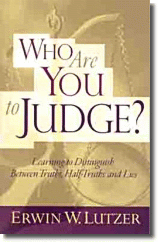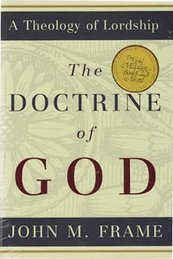"Creation-care"-A biblical perspective
The Earth is the Lord's, and the fulness thereof (Psalm 24:1)
15He is the image of the invisible God, the firstborn over all creation. 16For by him all things were created: things in heaven and on earth, visible and invisible, whether thrones or powers or rulers or authorities; all things were created by him and for him. 17He is before all things, and in him all things hold together. 18And he is the head of the body, the church; he is the beginning and the firstborn from among the dead, so that in everything he might have the supremacy. 19For God was pleased to have all his fullness dwell in him, 20and through him to reconcile to himself all things, whether things on earth or things in heaven, by making peace through his blood, shed on the cross.( Colossians 1:15-20,NIV)
2but in these last days he has spoken to us by his Son, whom he appointed heir of all things, and through whom he made the universe. 3The Son is the radiance of God's glory and the exact representation of his being, sustaining all things by his powerful word. After he had provided purification for sins, he sat down at the right hand of the Majesty in heaven.( Hebrews 1:2-3,NIV)
3Through him all things were made; without him nothing was made that has been made. 4In him was life, and that life was the light of men.( John 1:1-4, NIV)
We should be remindered that the Earth is the Lord's
Col. 1:16b: "all things were created by him (Christ) and for him."
Heb. 1:2: "In these last days He has spoken to us by his Son, whom he appointed heir of all things, and through whom he made the universe."
I Cor. 10:26: "'The earth is the Lord's, and everything in it.'"
Ps. 24:1: "The earth is the Lord's, and everything in it."
Lev. 25:23 "'The land must not be sold permanently, because the land is mine and you are but aliens and my tenants.'"
Deut. 10:14: "To the LORD your God belong the heavens, even the highest heavens, the earth and everything in it."
I Chron. 29:11-12: "Yours, O LORD, is the greatness and the power and the glory and the majesty and the splendor, for everything in heaven and earth is yours. Yours, O LORD, is the kingdom; you are exalted as head over all. Wealth and honor come from you; you are the ruler of all things. In your hands are strength and power to exalt and give strength to all."
Neh. 9:6: "You alone are the LORD. You made the heavens, even the highest heavens, and all their starry host, the earth and all that is on it, the seas and all that is in them. You give life to everything, and the multitudes of heaven worship you."
Isa. 66:1-2: "This is what the LORD says: 'Heaven is my throne, and the earth is my footstool . . . Has not my hand made all these things, and so they came into being?' declares the LORD."
The Evangelical Environmental Network has also provided a An Evangelical Declaration on the Care of Creation ,which I think is useful to help us think about Christian's responsiblity towards the environment. It begins with a series of reasons why should protect the environment.
As followers of Jesus Christ, committed to the full authority of the Scriptures, and aware of the ways we have degraded creation, we believe that biblical faith is essential to the solution of our ecological problems.
Because we worship and honor the Creator, we seek to cherish and care for the creation.
Because we have sinned, we have failed in our stewardship of creation. Therefore we repent of the way we have polluted, distorted, or destroyed so much of the Creator's work.
Because in Christ God has healed our alienation from God and extended to us the first fruits of the reconciliation of all things, we commit ourselves to working in the power of the Holy Spirit to share the Good News of Christ in word and deed, to work for the reconciliation of all people in Christ, and to extend Christ's healing to suffering creation.
Because we await the time when even the groaning creation will be restored to wholeness, we commit ourselves to work vigorously to protect and heal that creation for the honor and glory of the Creator---whom we know dimly through creation, but meet fully through Scripture and in Christ. We and our children face a growing crisis in the health of the creation in which we are embedded, and through which, by God's grace, we are sustained. Yet we continue to degrade that creation.
Then it goes on to say how biblical Christians can respond.
As followers of Jesus Christ, we believe that the Bible calls us to respond in four ways:
First, God calls us to confess and repent of attitudes which devalue creation, and which twist or ignore biblical revelation to support our misuse of it. Forgetting that "the earth is the Lord's," we have often simply used creation and forgotten our responsibility to care for it.
Second, our actions and attitudes toward the earth need to proceed from the center of our faith, and be rooted in the fullness of God's revelation in Christ and the Scriptures. We resist both ideologies which would presume the Gospel has nothing to do with the care of non-human creation and also ideologies which would reduce the Gospel to nothing more than the care of that creation.
Third, we seek carefully to learn all that the Bible tells us about the Creator, creation, and the human task. In our life and words we declare that full good news for all creation which is still waiting "with eager longing for the revealing of the children of God," (Rom. 8:19).
Fourth, we seek to understand what creation reveals about God's divinity, sustaining presence, and everlasting power, and what creation teaches us of its God-given order and the principles by which it works.
Thus we call on all those who are committed to the truth of the Gospel of Jesus Christ to affirm the following principles of biblical faith, and to seek ways of living out these principles in our personal lives, our churches, and society.
I think the ending is rather good and sound advice which is worthy of our attention:
We urge individual Christians and churches to be centers of creation's care and renewal, both delighting in creation as God's gift, and enjoying it as God's provision, in ways which sustain and heal the damaged fabric of the creation which God has entrusted to us.
We recall Jesus' words that our lives do not consist in the abundance of our possessions, and therefore we urge followers of Jesus to resist the allure of wastefulness and overconsumption by making personal lifestyle choices that express humility, forbearance, self restraint and frugality.
We call on all Christians to work for godly, just, and sustainable economies which reflect God's sovereign economy and enable men, women and children to flourish along with all the diversity of creation. We recognize that poverty forces people to degrade creation in order to survive; therefore we support the development of just, free economies which empower the poor and create abundance without diminishing creation's bounty.
We commit ourselves to work for responsible public policies which embody the principles of biblical stewardship of creation.
We invite Christians--individuals, congregations and organizations--to join with us in this evangelical declaration on the environment, becoming a covenant people in an ever-widening circle of biblical care for creation.
We call upon Christians to listen to and work with all those who are concerned about the healing of creation, with an eagerness both to learn from them and also to share with them our conviction that the God whom all people sense in creation (Acts 17:27) is known fully only in the Word made flesh in Christ the living God who made and sustains all things.
We make this declaration knowing that until Christ returns to reconcile all things, we are called to be faithful stewards of God's good garden, our earthly home.Another thing that makes this An Evangelical Declaration on the Care of Creation worthy of our attention is that it is signed by many prominent evangelical theologians/Christians, among which includes
Caring for the environment is not a difficult thing. For example, recycling just require some efforts from us. Or we can write on both sides of the paper. Copy our sermon notes in the Church bulletin instead of expensive notebooks! Share our books with friends. We don’t need every new edition of the bible on the book store’s shelf. We read books, not collect books. Ultimately we have a choice. We read books, not collect books. When we collect books, the books collect dust! We end up buying more furniture (book shelves), and ahh .… before we know it, the forest is gone!! As mentioned by the EEN, the choice before us is quite similar to the one Moses set before the children of Israel: "Now what I am commanding you today is not too difficult for you or beyond your reach ... I have set before you today life and prosperity, death and destruction ... Now choose life, so that you and your children may live" (Deut. 30:11, 15, 19b).
Theological Perspectives on the Environment (Recommendations on Theological works employing various methods to help Christians to think about the environment from a theological perspectives.
Evangelicals and the Environment (January 13, 2006)
The Evangelical Ecologist



No comments:
Post a Comment